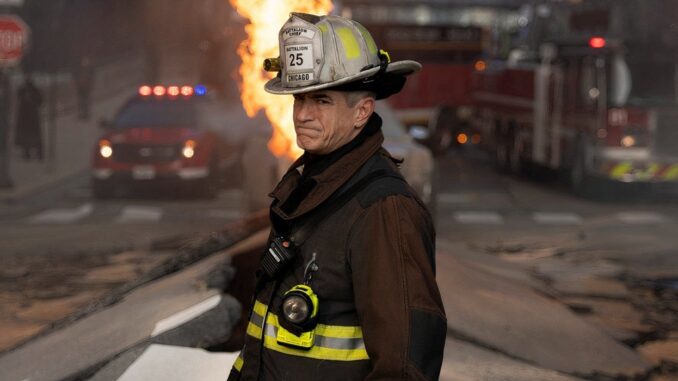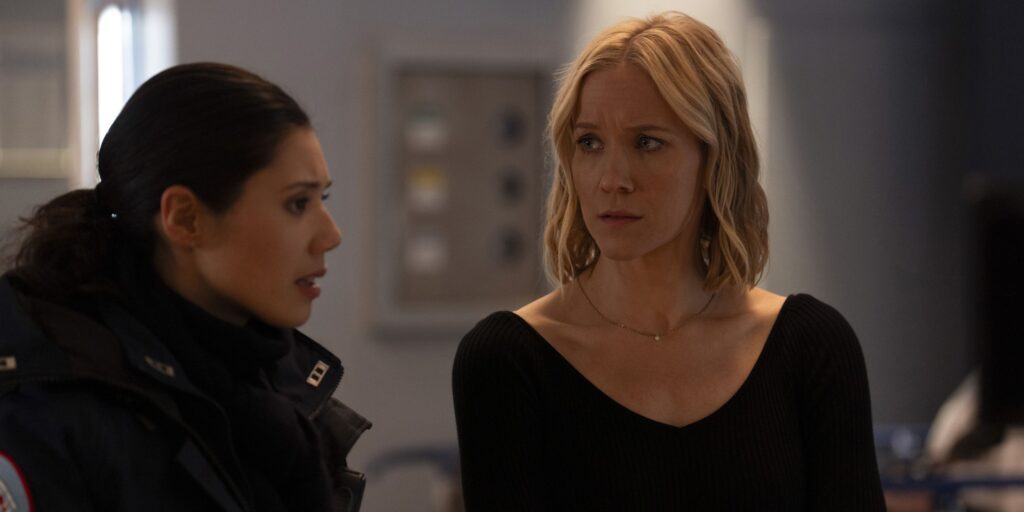
Warning! SPOILERS ahead for the 2025 One Chicago crossover, “In the Trenches.”
The highly anticipated One Chicago crossover, “In the Trenches,” had all the ingredients of a gripping, high-stakes episode—a catastrophic gas explosion, intense rescues, and emotional turmoil. However, the event overused a common TV trope, making the drama feel predictable rather than impactful.
Like many past One Chicago crossovers, the event kicked off with Firehouse 51 responding to a crisis, leading to a mass casualty event. This time, a gas explosion at a subway station resulted in a devastating collapse, trapping civilians and rescue workers alike. As Chicago Fire, Chicago P.D., and Chicago Med scrambled to respond, several main characters found themselves in life-threatening situations—but the overuse of the “partners in peril” trope cheapened what could have been a more powerful story.
The Crossover Put Three Couples in Danger—And It Was Too Much
While a One Chicago crossover naturally raises the stakes, “In the Trenches” went overboard by placing three major couples in peril at the same time. This repetitive storytelling made the suspense feel forced rather than genuinely shocking.
🔹 Trudy Platt & Mouch – The most intense and emotional storyline centered on Platt, who was shot in the back while pursuing a suspect. She was left bleeding out near the explosion site before being rushed to Chicago Med, where Mouch could do nothing but wait and hope.
🔹 Adam Ruzek & Kim Burgess – Meanwhile, Ruzek and Stella Kidd were trapped on a collapsed train, leaving Burgess fearing for his life. But with Ruzek and Burgess’ wedding already confirmed, the stakes didn’t feel as high as intended.
🔹 Stella Kidd & Kelly Severide – Kidd’s fight for survival inside the wreckage also meant that Severide was left helpless, echoing the same dynamic playing out with Burgess and Ruzek.
Instead of heightening the tension, these repeated near-death situations diluted the impact of the crossover’s biggest emotional punch—the potential loss of Platt and Mouch.

Platt & Mouch’s Storyline Deserved the Spotlight
The One Chicago crossover could have been much stronger if it had focused primarily on Platt and Mouch’s tragedy. Their storyline had genuine unpredictability—unlike Ruzek and Kidd, whose survival was practically guaranteed due to upcoming story arcs.
If the writers had centered the drama on Mouch’s helplessness as he waited for updates on Platt, it would have delivered a more focused, emotionally resonant story. Instead, the tension was spread too thin, making it harder for audiences to fully invest in any single crisis.
The “Partner in Peril” Trope Felt Forced
While it made sense for Severide and Burgess to worry about their significant others, it wasn’t necessary to suggest that either Kidd or Ruzek were actually at risk of dying. The episode would have been just as compelling if the focus had remained on:
✅ Severide & Burgess supporting each other through the crisis
✅ A deeper emotional arc about prioritizing loved ones after near-death experiences
✅ Platt & Mouch’s love story taking center stage
By overusing the same life-threatening scenario across multiple characters, One Chicago lost the opportunity to deliver a more intimate and powerful crossover.
Final Thoughts
The One Chicago crossover had the potential to be one of its most emotional episodes yet, but its over-reliance on a tired TV trope weakened the story. Instead of delivering one heart-wrenching, unforgettable storyline, the episode tried too hard to create suspense—and, in doing so, made the drama feel less authentic.
If future crossovers focus on quality over quantity, One Chicago can craft stories that truly resonate with fans—without feeling predictable or overdone.